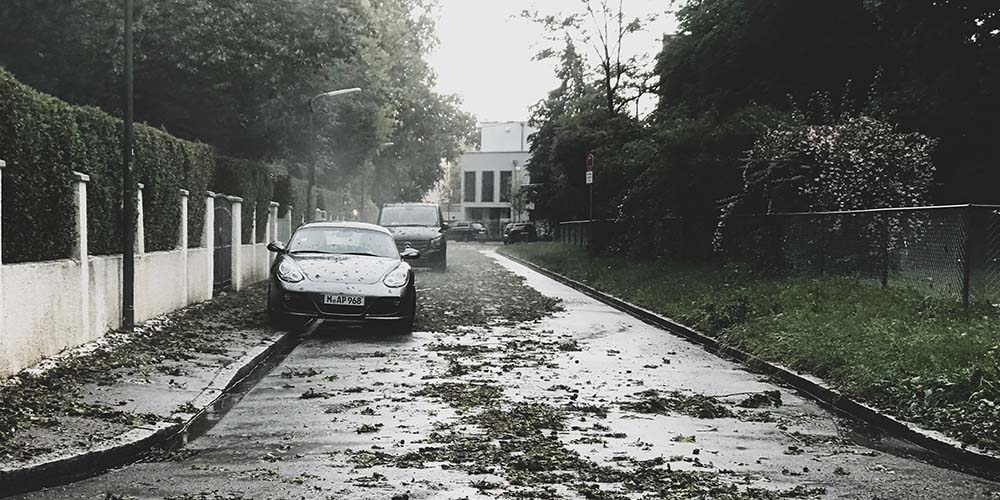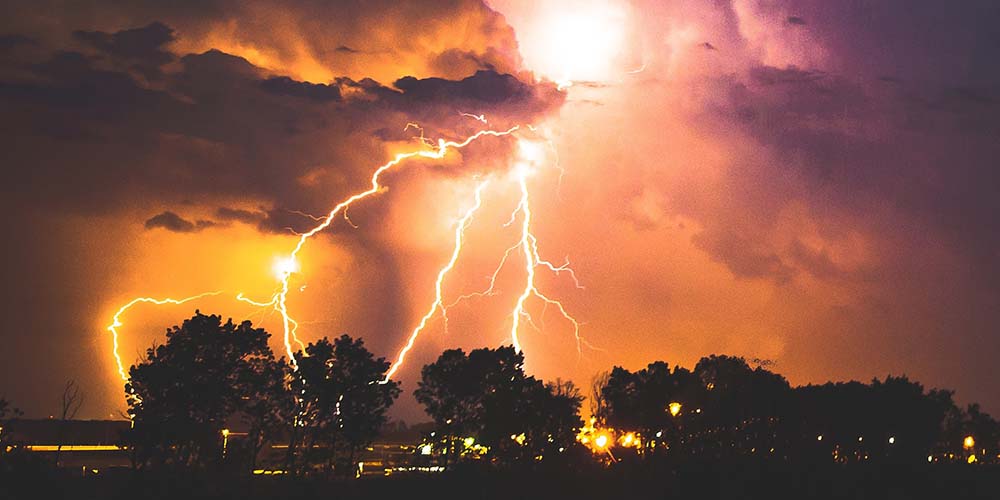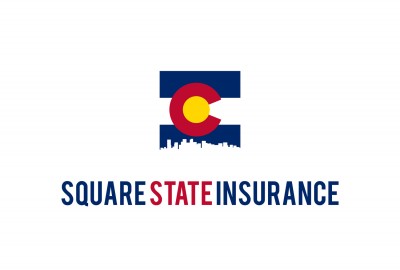So far this year in Colorado we’ve been generally lucky when it comes to the big spring hail storms we all fear. A few areas have been hit to be sure, but not with the devastation of previous years. Even so, we’re not out of the woods yet, and fingers crossed the big one isn’t around the corner. Even in the summer, Colorado can create some pretty nasty weather. When it comes to Colorado storms and homeowners insurance, there are several things you should know before the next storm ever hits. Let’s take a look at how to protect yourself and what to do if bad weather strikes in your area this year.
Fallen Trees
One of the biggest ways people are impacted when it comes to Colorado storms and homeowners insurance is when a large tree falls. This could be a tree falling onto your property or your tree falling onto someone else’s property. Ideally we hope neither happen, but when the storm winds pick up, you never know what to expect. Since a fallen tree can result from several different scenarios, let’s break it down a bit further.
Your Tree Falls On Someone’s Property
We hope it never happens, but sometimes a tree on your property may fall and damage someone else’s property. This could be another house, structure, car or other item. Generally a standard homeowners insurance policy will cover you in this event. There are however a couple exceptions to be aware of before the next storm hits. First if you are negligent in clearing dangerous brush or dead trees from your property, you may be found liable for the claim even though the storm gave the tree the final push. The best way to protect yourself from this is to inspect trees yearly and hire a tree removal service when needed. The cost of covering the claim and cleanup will be way more than the cost of hiring tree removers to take care of the problem ahead of time. Secondly if you try to remove a tree yourself and it damages someone else’s property, you could be liable as well. Be sure to know your limits and call in a professional if you have any doubts.

A Tree Falls On Your Property
As we talk about Colorado storms and homeowners insurance, we have to cover circumstances where a tree outside of your property falls. The good news is generally the policy of the tree’s owner will cover any damages you incur, including clean up. The only exception to this is if your property, say your car, is parked somewhere it isn’t supposed to be, like on someone else’s property. Just make sure to take plenty of photos and get estimates on repairs for whatever is damaged. You will want to contact your insurance company to help support you through the claims process.
Prevention
Before we move on to the other big claim reason in Colorado storms and homeowners insurance, let’s touch on prevention a bit more. As we mentioned earlier, it is your responsibility to keep your trees trimmed and cared for in your yard. Anything that is dead should be removed, and all low hanging branches should be trimmed. The summer can be a particularly demanding season for this, as some species’ limbs grow fast. You may not even realize how quickly your limbs go from trimmed to problematic during the growing season. However we all know you can’t do this for your neighbors. To protect yourself in a potential claim, it is best to send certified mail or correspondence to your neighbor asking them to remove a dead or threatening tree. Should they refuse and the tree damage your property, this correspondence will aid you in your claim.
Local Flooding
Fallen trees can be a big risk when it comes to Colorado storms and homeowners insurance, but local flooding is another big issue to prepare for when planning for storms. Notice we said “local” flooding instead of widespread flooding. There is a difference here. If your property is in a high risk flooding area (like near a river), you will want to get a separate flood insurance policy to protect your home. However if Colorado just experiences heavy rainfall for a period of time and your basement floods, this is a different story. But here is the key – you still have to install a sump pump. The majority of homeowners policies do not cover flooding of any kind. However if your sump pump fails for whatever reason, your homeowners policy may cover the flooding damages. Be sure to check with your insurance company for this kind of protection. It is well worth getting if you have a basement in your home.
Hail
No conversation about Colorado storms and homeowners insurance would be complete without discussing hail. The good news is none of us are liable for hail, which means the majority of claims are covered. However you do need to file a claim fairly quickly after the event. Since hail can be a seasonal event in some regions, you’ll want to get all damaged assessed before the next spring rolls around and new hail storms threaten again. It is also important to document all hail related damage to the storm with photos and videos. This will ensure all the necessary damage is included in the claim. A word of advice, if your hail damage is light from a storm, fix it yourself instead of filing a claim. Regardless of the incident, it is never worth filing a small homeowners claim. (Here is more information on the Dos and Don’ts of Hail Claims). Doing so may impact your future premiums as well as your insurance history.

Final Thoughts – Colorado Storms And Homeowners Insurance
When severe weather rumbles, you’ll feel a lot better knowing you’ve thought about Colorado storms and homeowners insurance before anything hits. In most circumstances, a standard insurance policy will protect you from the worst a storm can throw at your home. However it still pays to check your policy to ensure you’ve prepared for everything Colorado can throw at you. Contact Square State Insurance today and we’ll go through your policy. This way you can rest easy even when the skies turn dark and grey.

